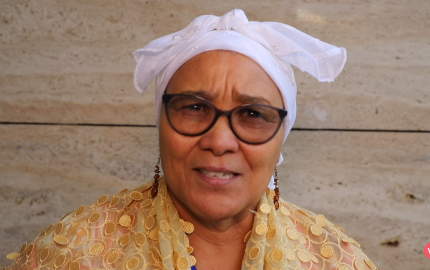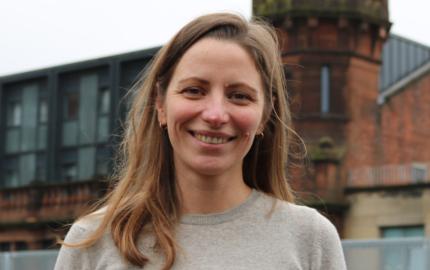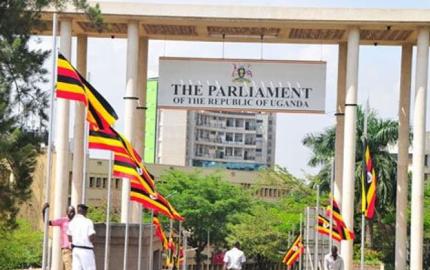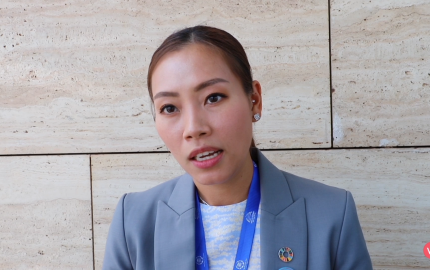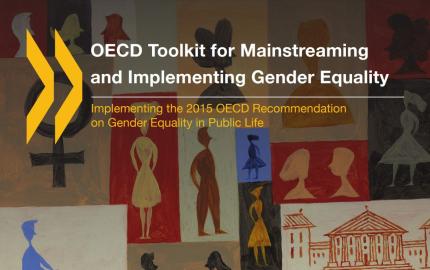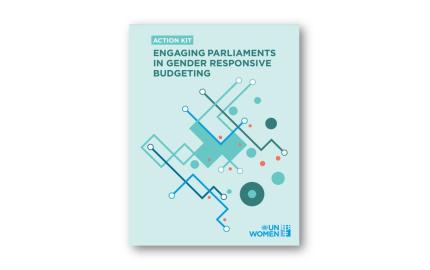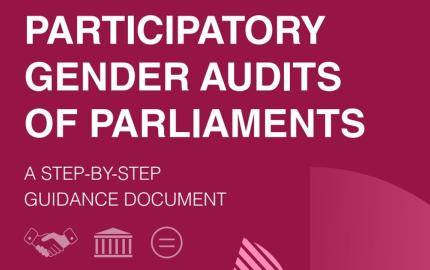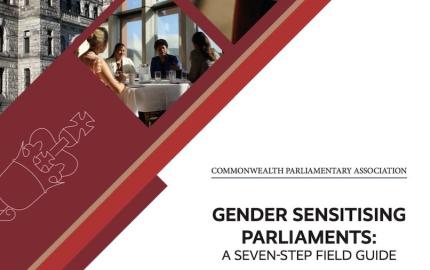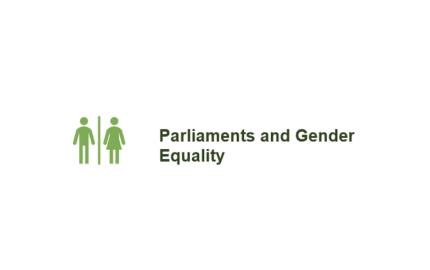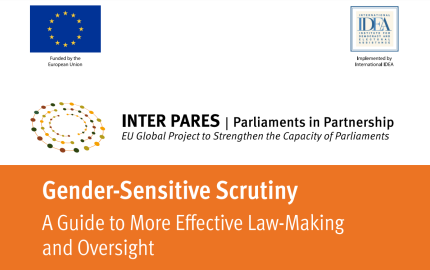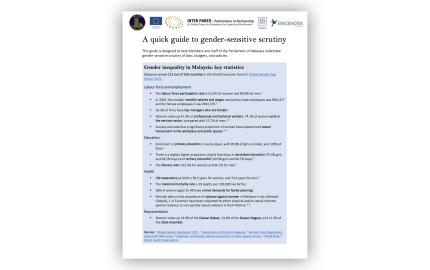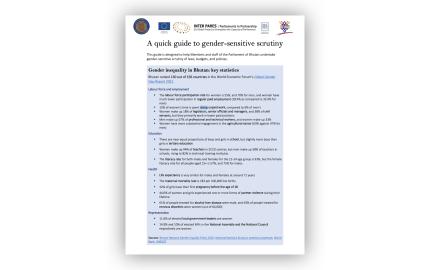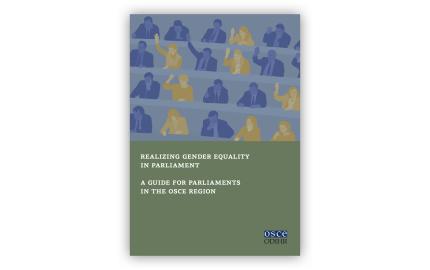Parliaments & Representatives
Main navigation
The priority theme of the 57th UN Commission of the Status of Women will be the elimination and prevention of all forms of violence against women and girls.
Inequalities in women's lives are complex and intersected and violence against women and girls can be tackled from many angles by different stakeholders.
It is an issue of universal interest, affecting women and girls globally, and parliamentarians can play a role in the elimination and prevention of all forms of violence against women and girls. To support parliamentarians in their preparation for CSW 57, in March 2013, iKNOW Politics will run an online discussion, in partnership with the Gender Parliamentary Reference Group of AGORA (the Portal for Parliamentary Development). This virtual discussion will focus on:
- Identifying the gaps and challenges in achieving the most effective responses among parliamentarians on this issue
- Highlighting the most effective parliamentary mechanisms for building policy and legislation to prevent violence, to support victims/survivors, and to tackle primary prevention (stopping violence before it starts)
- Discussing the impact violence against women has on perpetuating unequal gender political representation
Through this discussion, iKNOW Politics members and the Gender Parliamentary Reference Group can answer questions, and share experiences and best practices of parliamentarians' work to eliminate gender-based violence. All are welcome to participate!
From 9 November through 23 November 2012, iKNOW Politics will co-host a virtual discussion on the elimination and prevention of violence against women with AGORA (www.agora-parl.org).
The growing discourse on deepening democracy around the world is increasingly being anchored around democratic decentralisation and meaningful local governance which is also being linked to greater social accountability and public participation. Governance is not just about government but is now seen as a much wider process that involves how the idea of “public good” is both framed and contested which involves both private sector actors as well as ordinary citizens and civil society besides the government. The idea of local politics rather than local government provides space to examine how multiple actors – among them political parties - connect and contest for power in the formal and informal local spaces in a scenario where local governments have to increasingly live up to the expectation that they can indeed be responsive, accountable and participatory.
If being participatory is one of the principles informing the call to decentralize it follows that inclusion of women in local politics has to be ensured and actively encouraged – through political parties, organisations, movements, etc. Involvement of women in local politics is critical for their political and economic empowerment. Yet across the world there are several impediments to this process. Patriarchies cut across cultures and institutions across the world, sometimes in more open forms, at other times in a more subtle hidden manner even as it may differ in the degree in which it can affect women’s participation in politics.
Through this discussion iKNOW Politics invites participation from women and men in local government structures and civil society actors working with women in local politics and communities to share their insights and experiences on the following questions:
- Insights on local politics: what constitutes the arena of local politics, what roles do women play not just in the formal but also informal spaces within local politics and what is the impact of the latter?
- Participation: What are the factors that enable women to participate in local politics (including political parties) and what factors inhibit their participation? Are these different for the factors that enable/hinder their participation at the national level politics?
- Change Stories: Have there been studies to assess the quality of women’s participation in local politics in terms of the change they have made and the kind of difference they are making (or not making) in terms of their leadership roles, their contribution to development work, their hold over decision making, their empowerment within households and at the community level?
- Advocacy Strategies and best practices: what are some of the best practices at the level of advocacy strategies that promote the role of women in local politics, including political parties?
We look forward to hearing your views on some/all of these questions and sharing your experiences on this important issue with our users worldwide. To submit your contributions on one or several discussion questions mentioned above, please visit our website at www.iknowpolitics.org and register for the E-Discussion at http://iknowpolitics.org/en/node/40161.
iKNOW Politics Team
This discussion is aimed to shed light on the following questions:
1. What strategies have women’s caucuses developed to shape national policy agendas in different thematic areas (e.g. economy, security, health, environment, education and others( in ways that are gender-responsive? What are opportunities and challenges in this respect? What further measures are recommended to strengthen the capacities of women’s caucuses to promote gender equality and sustainable, equitable development in their daily work? What specific measures are recommended that target young women leaders as future agents of change?
2. What strategies have other formal and informal platforms developed and implemented to advocate for gender-sensitive policy and law making? What are challenges and opportunities in this respect? Which institutions are represented in these platforms (e.g. civil society, Parliament, political parties, public administration and Electoral Management Bodies) and what were some of their main achievements? What strategies are applied to ensure young women are being represented in and contributing to such platforms?
This discussion circle was moderated between Monday 13 and Friday 2 March 2012, with the formal part of the discussion ending on March 2.
Those who which to add further contributions and comments are welcome !
The consolidated response of the discusion is availabe below.

